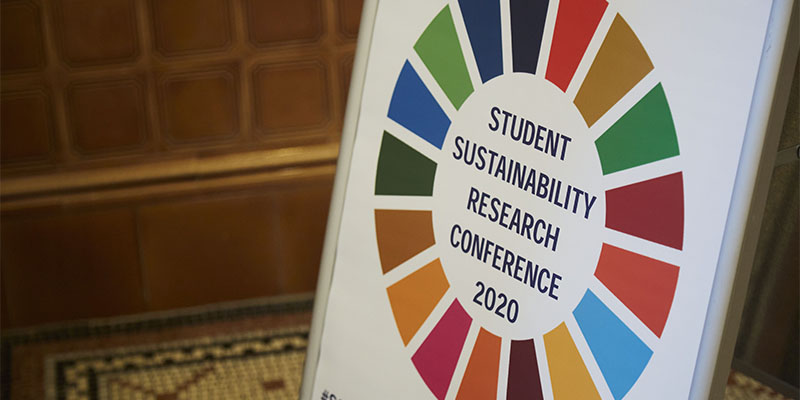My Journey to Sustainability

My blog expresses my experience of the Language in Context Sustainability Module. This elective module has made an immense impact on my whole outlook and engagement with sustainability.
My journey to sustainability started when I was at school. I was particularly influenced by my teacher Imran Ali. A man of tremendous intellect who spoke 18 languages. It was in his class that I first heard the word sustainability. I observed that he always carried a water bottle and a coffee cup in his bag which he used to buy tea and coffee in the canteen. This was way before the ‘keep cup’ era. Mr Ali explained that “all materials are humanity’s wealth and no-one should waste these materials”. This had a profound effect on me. It led me to re-evaluate how I use resources.
It resulted in a high school friend and I to do a three-month controlled experiment regarding paper napkin usage in the canteen. We concluded that napkin waste could be reduced by 60% with only a little care and awareness. My friend and I also made a pact that we would not upgrade our mobile phones every year, a habit we had, and that we would try not be persuaded into mass consumption of products that we do not really need. We tried to involve our school friends, but they were not interested in following this path. Over the years, I became self-sufficient to some extent. I learned how to cook, repair my phone, computer and car. My sensitivity towards the environment also increased and I tried to share this situation with the people around me including my own family. Sometimes I succeeded. Sometimes I failed. However, I did not lose my determination.
After these experiences, I didn’t think I would learn anything new from the elective Language in Context Sustainability Module. I was already inducted into sustainability and trying to live my life by being mindful in how I used the world’s resources. As my first-choice elective was full, I was allocated the above module.
To my surprise, the module added a greater depth of knowledge in a wider context to my existing understanding. For example, we looked at various definitions of sustainability and compared them to our own current definition. We were encouraged to keep a weekly learning diary to chart our learning. It was interesting to see how this module progressed my understanding of sustainability beyond recycling and protecting the environment. The module introduced me to other aspects of sustainability such as Economic and Social in addition to Environment. It made me realise that employment, fair trade, fair wages, infrastructure, security, working conditions, health services, education, social justice, life without conflict, community and culture as well as renewable energy, pollution, waste, biodiversity, restoration and conservation are all embedded in the term sustainability. The module encouraged much discussion and looked at sustainability from local, national and global levels. It included the Leeds University Sustainability Strategy (LUSS) which I did not even know existed. It enabled a deeper understanding about the different projects that students could become involved in such as the #2023 Plastic Free Campaign.
My curiosity was awakened even further when I learnt about the UN 2030 Sustainable Development Goals (SDGs). We as citizens of our respective countries which are members of the United Nations and signatories to the SDGs made it our responsibility to take note of these goals and work and contribute towards them. Looking at different case studies enabled links with LUSS and our disciplines too. It was interesting to see the role I could play both as a student and a professional in the field of Geophysics to ensure sustainability was taking place. The inclusive way the Sustainability module was delivered encouraged the whole class, made up of students from various disciplines, to contribute, voice their opinions and ask questions e.g. in small group discussion before having a whole class discussion. It was a supportive environment that valued all the students’ contributions e.g. even though only one group presented at the University’s Sustainability Conference the whole class assisted and supported the group so every student in the class had a stake in the presentation and poster.
Overall, this module has impacted me immensely. The tutor’s passion and enthusiasm about the subject and the ability to put across concepts in a lively and interesting way by connecting them to the real world and our daily lives was a highlight. The module has given me a greater insight into the term sustainability which enabled me to deliver my first presentation in English at the 2020 Sustainability Conference. It has also given me the confidence and the language to share and discuss this knowledge with colleagues and friends both at the University and at home in Turkey.
Muhammet Ali Aygün
MSc Structural Geology with Geophysics
Keep up to date on the latest news
- Follow us on Twitter: @UoL_Sus
- Follow us on Instagram: @uol_sus
- Follow us on Facebook: @UoLSustainability
- Sign up to our Sustainability newsletter
United Nations Sustainable Development Goals
We use the United Nations Sustainable Development Goals (SDGs) as a framework to guide our activity. Our work towards achieving engagement with sustainability is linked to the following SDGs:
- Goal 4: Quality education
Find out more about our impact on the SDGs.
